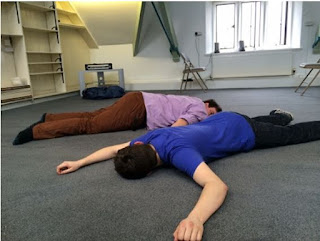 |
| Mac (far right) with Cameron and Harry from Corinium Radio on their 30 hour radio marthon. |
What to do when you are having bouts of
insomnia. Develop a good bedtime routine and watch your sleep patterns improve in no time. See below for simple but effective tips on getting that good nights sleep:
1.
Drink plenty of fluids during the day and then stop drinking
at about 90 minutes before bedtime.
2.
Exercise before bedtime can
also disrupt sleep. It may stimulate you too much.
3.
Develop a bat cave – the
bedroom should be completely blacked out when you close the curtains - the
darker the better.
 |
| Do you rarely feel like this? Read on... |
4.
Switch OFF - When
your eyes are exposed to light, your brain produces less of the sleep-inducing hormone melatonin. Light towards the
blue end of the spectrum is especially stimulating and, unfortunately, computer
screens, tablets, smartphones and LED lighting all emit a lot of blue light.
Try not to use these devices in the two hours before you go to bed. If you must
use them, turn down the brightness or wear amber-tinted glasses designed to
block blue light.
5.
Stay cool - When we sleep, our
body temperature drops. Having a cooler room temperature helps the body cool a
bit, which helps with sleep. Room temperature. 55-68
degrees is ideal, warmer and it can disrupt sleep and make it harder to fall
asleep.
6.
Eating before bedtime affects
sleep quality. Avoid sugar, alcohol and simple carbs, all of these affect sleep
quality.
7.
Brain dump- Are you struggling to fall asleep because you are
worrying about a problem, or thinking about what you need to do the next day?
Put a notepad on your bedside table and, before you nod off, make a list of
what’s on your mind or make a to-do list for the next morning.
8.
Brain trickery - If you want to nod off, try to keep your eyes open and
stay awake. Oddly, attempting to stay awake is surprisingly tiring and helps
you fall asleep. But remember that you have to use the power of your mind – you
must try to keep your eyes open (you are allowed to blink), but are not allowed
to read, watch television, or move about.
9.
Magnesium is known as the
anti-stress, anti-anxiety mineral and is a natural sleep aid. Numerous studies
have shown its effectiveness in lowering anxiety and reducing stress levels as
well as helping with deeper more restful sleep.
Not all forms of magnesium
are easily absorbed by the body. Magnesium citrate powder is a highly
absorbable form that can be mixed with hot or cold water and sipped at work or
at home throughout the day.
10. Belly Breathe – As you lay there diaphragmatically breathe (deep
belly breathe) and only concentrate on the breathing eliminate all other
thoughts.
11. Meditate – Listen to a relaxing tune or a guided meditative track.
If done repeatedly this will train the brain its time to sleep.
If you’re awake for more than about 20 minutes during the night,
get out of bed and do some form of non-stimulating activity, such as working on
a jigsaw or a colouring book (remember to avoid bright lights and computer
screens). This helps to prevent you associating your bed with sleeplessness.
And if the problem arises later in the night, climb back out of bed and
distract yourself again.
Lying awake makes many people feel anxious, and this anxiety
disrupts their sleep even more, creating a vicious cycle. If you are struggling
to sleep, remember that you are probably getting more sleep than you think.
Sweet Dreamzzzzzz
Contact Elite below:
http://www.elitefit.co.uk/ (01285) 239283


No comments:
Post a Comment